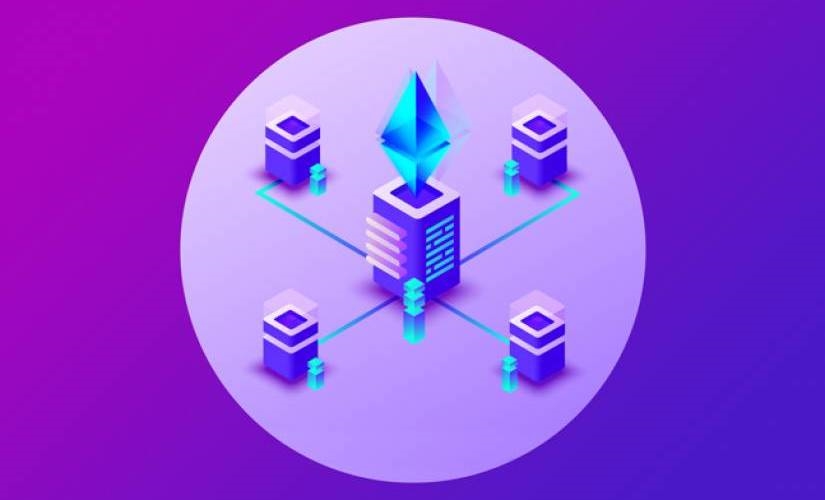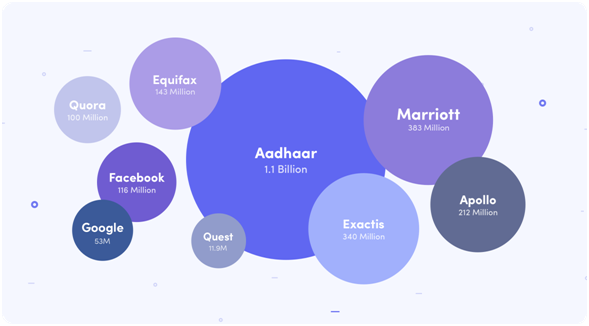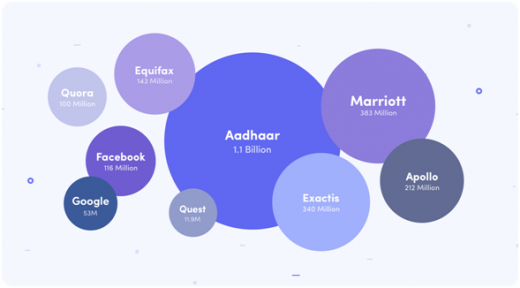6 Industries Blockchain Technology Will Revolutionize
6 Industries Blockchain Technology Will Revolutionize

In line with new evolving computer technologies, a lot of issues previously found complicated are now seen as an easygoing task, for example, e-commerce, contactless payment, secured online transactions, and ride-hailing. All thanks to blockchain, a new technology that massively revitalized all-around sectors, equipping the financial industry with enhanced solutions with less or no additional fees.
Kicking off as the underlying technology of digital currencies such as Bitcoin (BTC), blockchain technology has interestingly gone far beyond the concept of serving as a public transaction ledger, to affecting the way we pay, play and work.
Blockchain is an open, distributed ledger that efficiently keeps records of transactions permanently.
“BlockChain,” as it was initially called, constitutes a growing list of records known as blocks, which are linked using cryptography. In a simpler term, Each block holds data either about financial transactions, voting results, contracts, medical reports, trades, and so on, within blockchain network in cryptographic form. The blocks are usually interconnected and lined up in a chain to create a new block.
The idea allows for the distribution of digital information that cannot be copied, thereby creating a foundation for a new type of internet.
While the technical communities around the world are seeking other potential applications of this technology, blockchain has already ignited changes.
While there are nonobvious industries that blockchain will likely affect, we will highlight in this article, how blockchain-based technical solutions can enhance operational systems in sectors such as:
- eCommerce
- Finance
- Government Administration
- Healthcare
- Education
- Agriculture
1. Blockchain in eCommerce
With blockchain being heralded as the foundation of Web 3.0, it would not be wrong to expect that the innovative technology has as much impact on the multi-trillion eCommerce industry as the internet had on commerce in general.
Among other possible applications, blockchain technology could revolutionize eCommerce by:
- Simplifying payments
- Monitoring the supply chain
- Introducing decentralized marketplaces.
Payments and Loyalty Rewards
Adopting cryptocurrencies (an offshoot of blockchain technology) can allow a merchant to receive payments in real-time. There is no need for a middleman such as banks or expensive payment processors, while also serving an international audience.
Crypto payment processors like BitPay or BTCPay typically charge a 1% fee for helping merchants collect cryptocurrencies with the option to receive the fiat equivalent in their bank accounts or crypto in their wallets.
Although cryptocurrencies fluctuate in value and as such could decline massively in the space of a few minutes, other variants such as Tether (USDT) and Circle (USDC) are stablecoins and could help merchants accept payments seamlessly.
Meanwhile, the use of tokens issued on a blockchain can revolutionize the idea of reward loyal customers more transparently. For instance, customers who purchase a specific number of items monthly could receive tokens that can be redeemed for other products or invitations to local events.
Supply Chain Monitoring
Many of the largest retailers and commercial banks, including the U.K based Lloyds Bank has adopted blockchain-based solutions to monitor supply chain in trade finance.
The use of blockchain helps merchants eliminate paper and manual work while also keeping an eye on their shipments as they travel across the world, to the doorstop or port of the recipient.
Decentralized Marketplaces
A blockchain-powered decentralized marketplace is the modernized version of P2P eCommerce sites, with the primary difference being that a single cryptocurrency could serve as the unit of payment.
In other cases, members of the network could stake cryptocurrencies to receive rewards or serve as judges on rare occasions where two transacting parties cannot reach consensus regarding a sale.
2. Blockchain in Finance
Recent advances in blockchain opened up several arrays of decentralized and distributed systems, notably revolutionizing fintech and the capital market.
For instance, several processes involved in the financial institutions have dramatically improved by DLT, resulting in security, speed of transactions, and simplicity. Famous U.S bank JP Morgan Chase recently created a cryptocurrency to enhance its internal operations.
On another hand, it is fair to note that the current capital markets infrastructure is relatively expensive, slow and often requires more intermediaries. Although the bureaucratic nature complicates the performance and receiving of financial services, the concept of DLT holds solutions to this problem.
Following the advent of crypto tokens as a tool for raising capital in 2017, the market has mostly evolved to allow businesses to raise money by distributing blockchain-based tokens (security tokens) representing the investor’s ownership in the company.
According to a report from industry researcher, BlockState, 64 companies that used this method raised nearly $ 1 billion between the start of the year and July, meaning that there is potential for more adoption of this funding mechanism.
3. Blockchain in Government Administration
Looking at the cross-cutting potential of blockchain — the technology has moved from relative obscurity to mainstream adoption in the governmental sector, from the improvement of public services to the resolving of political issues like the storage of voting records.
One good thing about this technology is that the public sector organizations and governments all over the world now acknowledge the transformative advantage of blockchain to do away with antiquated processes and legacy systems and instead achieve responsive structures.
While we continue to note a growing number of potential public sector blockchain applications, a few hundreds of leaders in government are reportedly joining several blockchain groups. These groups include the General Services Administration’s (GSA) blockchain working group, to share use cases and best practices.
Governments are incorporating blockchain to build trust with her citizens, following an attribute of blockchain-based solutions, accounting for transparency through decentralization. The idea enables participating parties to see and verify data too.
Launching a blockchain solution for the citizen services will trigger independent verification of legal claims.
The governments of Estonia, Sweden, and Georgia are conducting a test on blockchain-based land registries, allowing different parties to hold copies of the record securely.
This model of sharing access to records helps in addressing property disputes and potentially decrease distrust while promoting the trust between the citizens of a country and the government.
Deploying this technology helps to protect sensitive data in governmental departments. The fact that governments exist as a default record keeper for the country makes them a prime target for hackers.
In 2017 alone, Bloom reported that 143 million different personal data such as full names, birthdays, driver’s license numbers were exposed aside from other significant major data breaches through the years.

Instead of accepting such breach from hackers, the issue can rightly be resolved through the responsible integration of blockchain data structures. Blockchain supports data structures that harden network security, reduce single-point-of-failure risk, and renders any attempts to have the info prohibitively challenging.
According to a statement from Doughlas Maughan, an official of the U.S Department of Homeland Security (DHS), “blockchain technologies have the potential to revolutionize the way we manage online identity and access the internet; this R&D project will help bring this potential closer to reality.”
4. Blockchain in Healthcare
The fact that blockchain much works as a tool in securing and saving patients’ confidential data, cannot be overemphasized. The possibilities for the application of the technology in different hospitals, clinics, the laboratory has begun to be tested across various pilot projects around the world.
In 2018, Booz Allen Hamilton Consulting, based in the United States, implemented a blockchain-supported pilot platform, which aims at assisting the Food and Drug Administration’s Office of Translational Sciences to learn possible ways blockchain can be applied in the healthcare data management.
The pilot project uses Ethereum to manage data access through VPNs, and it is currently being operated at four major hospitals. The plan reduces data duplication from off-chain cloud components by using a cryptographic algorithm to enable user sharing.
This finding indicates that the latest digital platforms supported by blockchains are rapidly emerging, not just for the government and financial institutions only, but for healthcare as well, as it enables a fast and seamless interaction amongst data providers, including the patients.
Decentralized applications (DApps), as well as distributed apps built on the blockchain platforms, allows patients and physicians to easily participate in telemedicine without paying for a middleman costs except for the minimal charges of the Ethereum network. This idea allows for the empowerment of patients.
The fact that maintaining a typical healthcare Information system comprises several advanced operations such as performing backup storage services, ensuring up-to-date fields, and having recovery mechanisms in place, is the fundamental reason for the application of blockchain in the healthcare sector.
In a blockchain, there is no point of failure that can lead to an inherent backup mechanism, giving that data are distributed across the network. Also, each version of data is usually copied on every node of the blockchain.
This effort mitigates the burden on the healthcare ecosystems by reducing the volume of transactions that occur between any information system.
Thus, with the progress of healthcare institutions in the cloud healthcare data storage, patient data privacy protection regulations. Electronic health-related data gathering, opportunities are automatically popping up for daily health data management, allowing for easy access and sharing of patients’ health data.
5. Blockchain in Education
Education is another sector that is just as important as finance and healthcare, although there are lots of areas in this sector that could be enhanced using the technology.
Having a closer look at other industries that currently use blockchain technology, one can give a distinct prediction on how these networks could be used in the educational sector. However, it is also worthy to note that blockchain use in the education setting is still very new and unexplored.
Nonetheless, tremendous progress has already been made from little participation in this technology. Nowadays, blockchain solutions are deployed in simplifying the process of document verification in schools, e.g., Californian Holberton School and other institutions are considering the implementation of the network too.
The Russian platform Disciplina is arguably the first institution to harness the power of blockchain technology on the purpose of education and recruiting. One of the Disciplina applications dubbed TeachMePlease is considered a higher education marketplace that unites teachers and students.
Further, since technology makes it easier to keep track of and store information, schools can test the possibility of deploying blockchain to enhance Information services and libraries in schools.
Blockchain-based ride-sharing applications can also be utilized to arrange carpools for any students with special needs. This takes off the burden of parents or guardians, ensuring that their children get safe transportation since roadways are getting more congested.
Moving away from providing more security for humans, the verification of student records is becoming a significant problem on college campuses, even after students leave the school for work, due to existing vulnerabilities.
Data breaches on schools are mostly directed on student records, wherein the stolen pieces of information are used in creating fake identities by hackers.
To solve this problem, employing blockchain security protocols in the protection of school records renders such attacks on credentials near impossible. As a lot of schools are currently going digital, from kindergarten to university, harnessing blockchain is an unarguably essential tool in ensuring the student’s privacy.
With blockchain, verification of students’ credentials is made easy. As blockchain stores that information in a secure ledger, employers can detect whether the potential candidates have the qualifications stated on their resume before the students can enter the workforce.
6. Blockchain in Agriculture
Farming consists of complicated ecosystems, with a lot of moving parts, seasonal financing structures, as well as careful timing. Once a product leaves the farm to the market, it automatically becomes a part of the vast supply chain that involves a lot of intermediaries.
It becomes so much easier for people to know where the food has been produced through the concept of Blockchain Agriculture. The application of blockchain calls for transparent execution and tracking of pieces of information while making the process of growing and supplying food simpler.
The idea for the blockchain agriculture supply chain feeds all the parties involved with a single source of truth.
A blockchain pilot project financed by the Dutch Ministry of Agriculture, Nature and Food Quality called “Blockchain for Agrifood,” indicates that the technology allowed for the tracking of farm produces, right from the farm to grocery stores in a moment.
Another compelling use case of the technology is to help keep tabs on abundant commodities on the farm and mitigate the case of shipping fraud and illegal harvesting.
According to data released by the United Nations, food frauds cost the world economy a whopping amount of $ 40 billion yearly due to illicit trades that the use of blockchain could have significantly reduced.
On a final note, while it is true that most of the blockchain use cases that we’ve mentioned so far only exist theoretically, the level of industry growth that we’ve seen in the last decade raises confidence that the technology will outlive the hype and truly become the foundation for Web 3.0
Yes, with global blockchain revenue expected to hit a conservative $ 23.3 billion by 2023, one can only help but envisage how widespread the technology will become in the next few years.
The post 6 Industries Blockchain Technology Will Revolutionize appeared first on ReadWrite.
(60)


